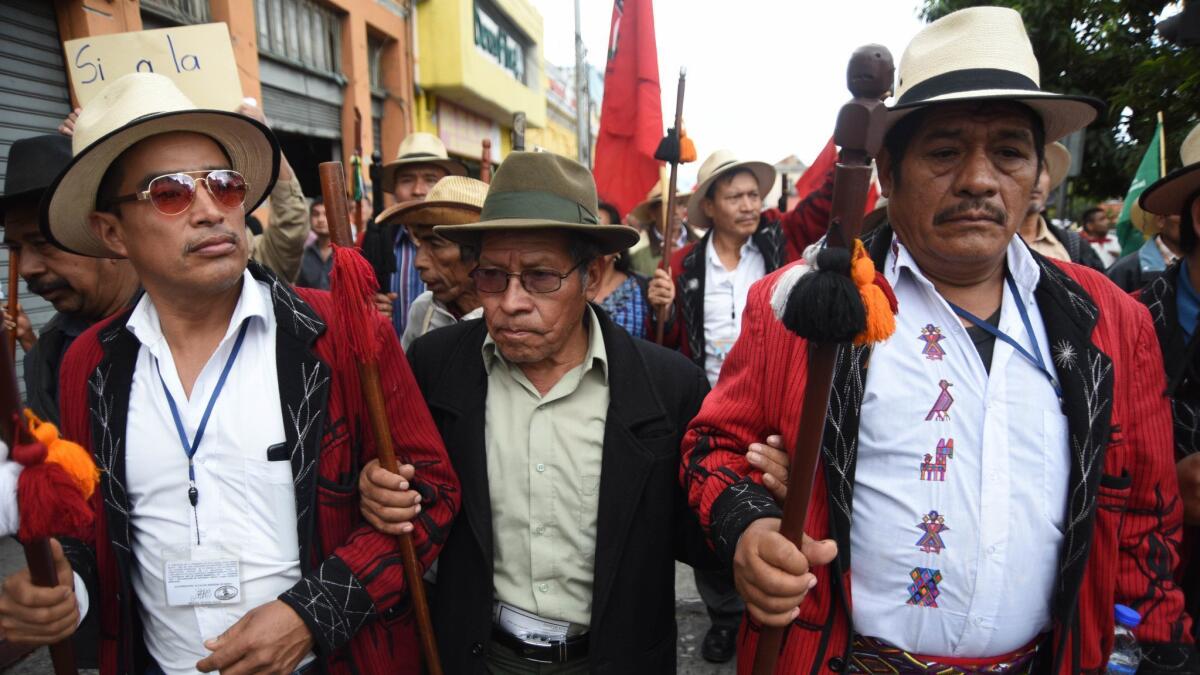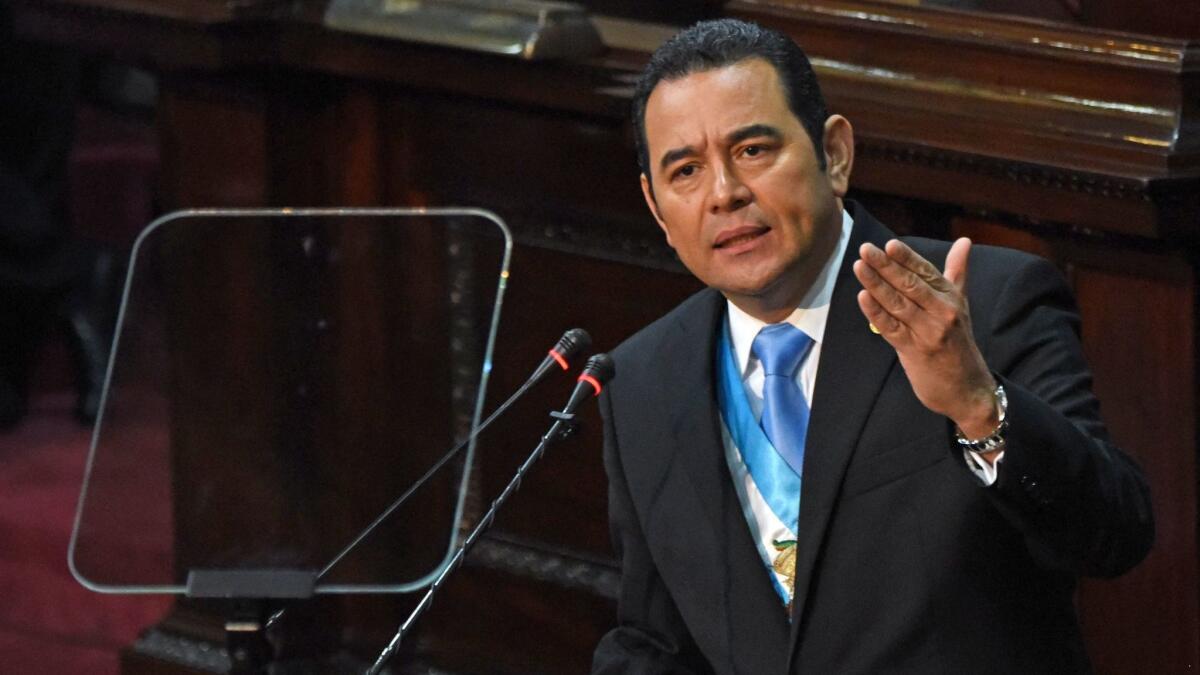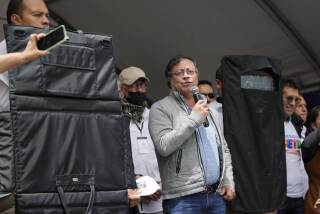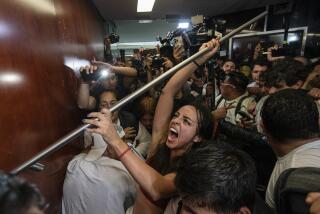Thousands of Guatemalans protest in support of anti-corruption commission

Reporting from Guatemala City — Thousands of Guatemalans on Monday protested the government’s ongoing attacks on an international anti-corruption commission and recent efforts to remove judges on the country’s highest court.
Rallies, marches and roadblocks occurred across the nation, coinciding with President Jimmy Morales’ annual report to Congress, a speech akin to the state of the union address.
For the record:
11:25 a.m. Jan. 15, 2019An earlier version of this article said former Guatemala President Otto Perez Molina was convicted for his role in a customs corruption scheme. Perez Molina is awaiting trial on corruption charges.
“We’re worried for Guatemala,” said day laborer Francisco Xelemango, who participated in a march in Guatemala City. “What the government is doing these days is just to protect government officials and to protect the corrupt.”
Guatemala has been in crisis since last week, when Morales abruptly kicked out a United Nations-backed anti-corruption commission that had been investigating him and several members of his family.
Morales ignored a ruling by the nation’s highest court that reversed that decision, and appears to support an effort underway by his allies in Congress to impeach the Constitutional Court judges who have opposed his efforts to expel the commission.
Morales only briefly alluded to the crisis in his speech, which focused largely on his administration’s work on infrastructure, social programs and other issues.
“With respect to the fight against corruption, my government continues taking action to guarantee transparency,” he said.

Opposition lawmakers who boycotted the president’s speech accused Morales of thrusting the country into crisis so that he could protect himself.
“The actions of the president have brought about a constitutional crisis, a crisis of the state,” said Sandra Moran, one of the lawmakers who sat out the president’s speech.
In Guatemala City, the capital, more than 20 blocks in the city center were shut to vehicle traffic and a heavy police presence guarded the area as a protest march called by more than 60 social movement organizations sought to reach the central plaza.
Miguel de Leon, one of the indigenous authorities leading the march, said he supports the International Commission Against Impunity in Guatemala, known as the CICIG.
A representative from a traditional governance body in the Maya Ixil region 130 miles northwest of the capital, De Leon said the president’s recent actions are a dangerous slide backward toward the authoritarian regimes that dominated 20th century Guatemala.
A 36-year civil war between the army and leftist guerrillas left more than 200,000 people dead, many of them indigenous Maya civilians killed by the army.
“We have suffered massacres and genocide and we feel sorrow at the possibility of history repeating itself,” De Leon said.
Since 2007, the international commission’s independent investigators have exposed 60 criminal organizations and helped send 300 people to jail, said Ivan Velasquez, the Colombian jurist who heads the commission.
Former President Otto Perez Molina is awaiting trial on corruption charges.
After Perez Molina resigned in 2015, Morales was elected on an anti-corruption platform. But he turned on the commission after he and his party came under investigation for illegal campaign financing. His brother and son were arrested in a separate corruption case. They have all denied the allegations.
The president’s efforts to expel the commission included declaring Velasquez persona non grata in 2017, a decision overturned by the Constitutional Court.
In August, Morales announced that he would not renew the commission’s mandate, set to end in September. Days later, his government barred Velasquez from the country, alleging that he is a threat to national security.
The Constitutional Court again reversed the measure, but the government responded with open defiance, and Velasquez remained at the head of the commission from outside the country. After the commission’s expulsion Jan. 7, all of its international staff left Guatemala.
The U.S. government response to Morales’ actions in recent months has been largely limited to brief public statements in support of anti-corruption efforts but not explicit support for the CICIG.
Protesters and opposition lawmakers say the constitutional order and democracy are under attack. The stakes are higher than ever with general elections just five months away, they say.
The commission had an agreement with the Supreme Electoral Tribunal to assist the tribunal in ensuring fair and transparent elections.
In a statement Monday, U.N. High Commissioner for Human Rights Michelle Bachelet stressed the importance of guaranteeing the rule of law and respect for courts, prosecutors, human rights officials and the electoral tribunal.
“The proper exercise of their functions is fundamental in the current context and for the general elections to be held in the coming months. Respect for their safety and their physical integrity, as well as that of their families, must be guaranteed by the state of Guatemala,” she said.
Cuffe is a special correspondent. Times staff writer Kate Linthicum in Mexico City contributed to this report.
More to Read
Sign up for Essential California
The most important California stories and recommendations in your inbox every morning.
You may occasionally receive promotional content from the Los Angeles Times.










